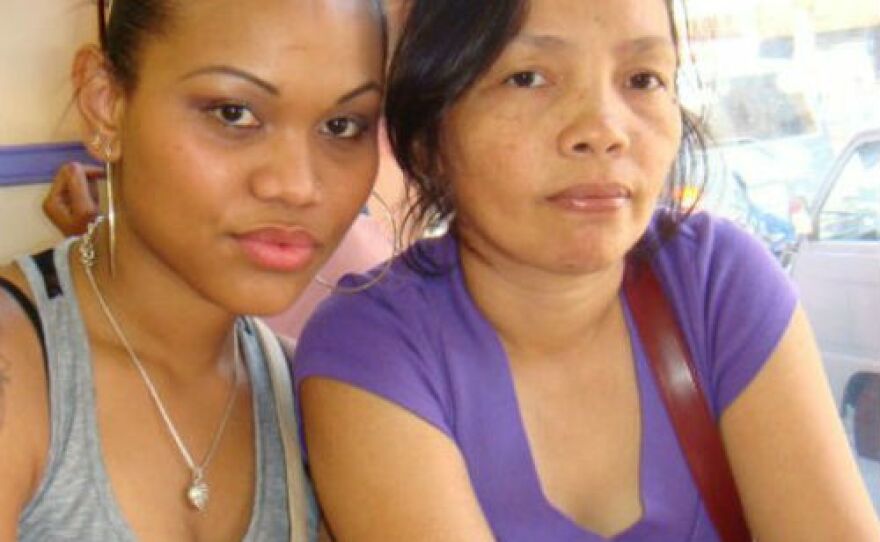At least 30,000 Filipinos live in North Texas – and after last week’s typhoon in the Philippines, many in Dallas-Fort Worth are still trying to track down family members who are overseas.
Kristal Honie Abalos of Bedford is among them. She hasn't slept for nearly a week. Her mom, two sisters and a brother, plus 20 immediate relatives, are unaccounted for in Tanauan, a town next to the city of Tacloban, one of the hardest hit by Typhoon Haiyan.
"I went through a whole lot of storms with them, but nothing, nothing has been as worse as this,” she said.
At first, Abalos, who was born on a U.S. Air Force Base in the Philippines, watched the news non-stop. Then she reached out on Facebook, asking for help finding her family. She even friended the governor of her hometown in Tanauan.
"All they can show me is dead people"
"They had a little bit of news from my town, and all they can show me is dead people,” Abalos said. “They have 3,000 people, and the water was 10 feet high, most houses are not even 12 feet high."
Abalos, a dialysis technician, says she just wants to know that her family is safe.
"It's killing me just because I want to be able to help them, all I want is to hear that they, to hear their voice, that they are OK, especially the little kids," she said.
At Umphress Road United Methodist Church in Dallas, pastor Levy Laguardia says many in his mostly Filipino-American congregation have family members in Tacloban and neighboring provinces.
"So devastating"
"The mood of people are just hurting, in pain, and crying, and really knowing nothing from their family in the Philippines,” he said. “It's just so devastating for them."
The Roscon Foundation, a non-profit group based in northern Dallas, has people on the islands of Luzon, Cebu and Visayas. Director Carol Smith says they have helped Filipinos cope with past storms. Based on prior experience, they'll need food and water first, then sanitary shelters, and medical supplies next.
"They will be needing a lot of medicines, especially after the typhoons,” Smith said. “There will be a lot of illnesses going around, so this medicines are very needed on these several areas."
Smith says her group is accepting donations and canned foods. They have a fundraiser planned in December.
"The only thing that we can do, is send in as much as we can over there, and when another calamity hits, at least they have supplies ready to give out," she said.





